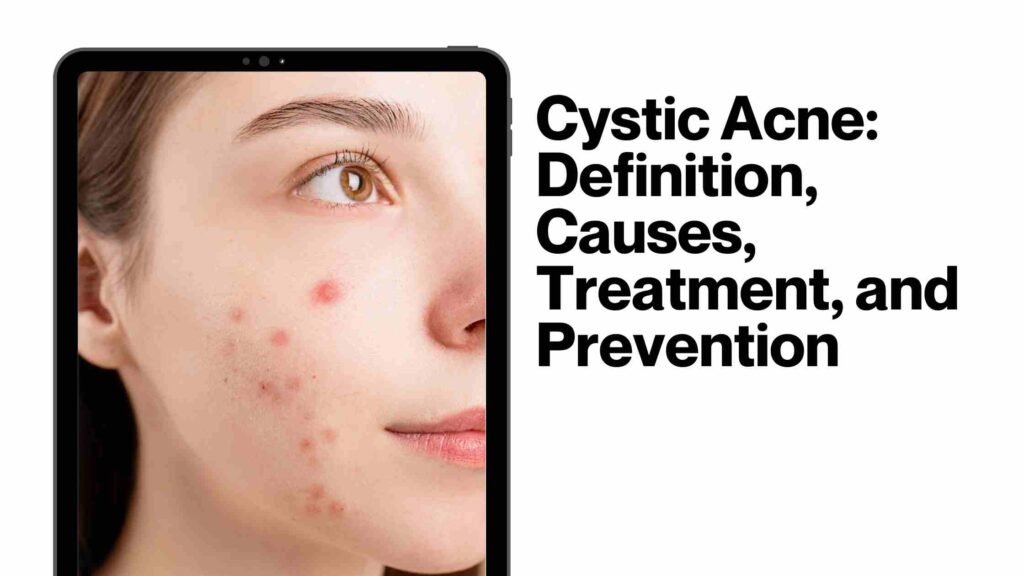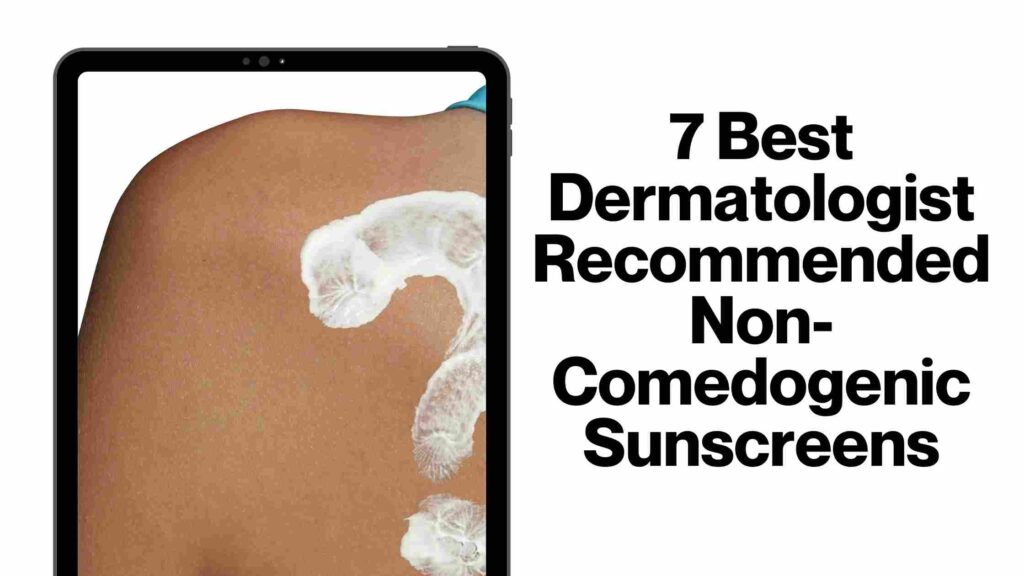Cystic acne is a type of acne in which puss- filled acne cysts (pimples) will develop deep inside the skin. This is most serious type of acne they are painful and may be large some times. Bacteria, oil and dry skin cells, all together accumulates in the pores and foams pimples.
Anyone can develop cystic acne irrespective with the age, as this type of acne is stubborn and painful, they won’t go away easily, A dermatologist can treat cystic acne to reduce the risk of the infection and they help to clear your skin.

What Is Cystic Acne?
Cystic acne is a type of acne, one can have large, red, painful bumps under your skin. Usually, pimples appear when skin gets clogged excess oil known as sebum, dead skin cells, bacteria get trapped and causes that particular area to become bulge (swollen), red.
Acne becomes cystic acne, when the infection goes deep in to your skin and creates a bump which is full of puss cells. As a result of the this it may hurt and also causes itching at the site of pimples. If the cyst with puss bursts it spreads the infection and causes more pimples.
At earlier stages you can treat these breakouts, if you ignore them, they can last for years. Cystic acne affects large areas of your skin and it leaves deep scars on your skin. Seek your dermatologist help to treat the cystic acne.
Cystic Acne Causes
There are no particular reasons what causes cystic acne. Teenagers are very likely to affect with cystic acne, because hormones called androgens play a vital role in teenagers as the hormones levels go high, this leads to changes in the skin which results in clogging pores and forms acne.
Some other reasons that cause acne are:
- Hormonal imbalance
- PCOS (polycystic ovarian syndrome)
- People under certain mediations
- Women’s menstrual cycle
- Pregnancy
- Menopause
- Usage of some skin products
- Tight clothing
Cystic Acne Risk Factors
Irrespective with the age, there might be chance of getting cystic acne in your teenage. But it may happen to children of 8 years to adults of 50 years. It may affect the places like face, chest, shoulders, upper back and lower back.
Cystic acne is also a genetical acne if your parents experience this type of acne, you have a higher risk of getting it. This is most common and usually seen in both men and women who are affected with cysts on their lower face.
How to identify cystic acne?
Cystic acne is a foam of serious type of acne, it is larger in size and deeper underneath your skin. All other type of the acne appears on the top of your skin surface.
Cystic acne some times looks like bubbles on the skin like skin boils. Other identifying features for cystic acne are:
- Large puss filled cysts
- White bump
- Redness
- Very painful
- Sometimes also causes itching
This cystic acne is easily identified on your face as it is visible. They also common on the chest, back, neck, arms. It may even develop behind the ears.
Cystic acne Treatment
Based on the severity of the cystic acne, Topical treatments are not strong enough to treat this. You need to take a help of dermatologist for prescribed medications. They suggest you the combination treatments and medications for the treatment being used, you have to wait up to 8 weeks for the best results.
Here we provide with some treatments:
Isotretinoin
Isotretinoin is a doctor’s prescribed medication which is used to treat cystic acne due to its effectiveness in the treatment. It is a derivative form of Vitamin A, and it is taken in the form of a tablet.
People who are taking isotretinoin can experience the results within Four to six months. In spite of efficiency, it also associated with some risk factors.
- Inflammatory bowel disease
- Blood in urine
- Muscle and joint pain
- Worsening mood swings
- Headache
If you see this type of symptoms talk to your doctor immediately.
Oral antibiotics
Oral antibiotics are used to treat cystic acne as it covers large area of your skin. It gradually, decreases the bacteria and inflammation that contributes for cystic acne formation. But antibiotics doesn’t relive excess oil and dead skin cells.
Side Effects for oral antibiotics are:
- Diarrhoea
- Nausea
- Abdominal pain
- Vomiting etc.
Oral antibiotics should be used only for short time, having concerns with bacterial resistance. If antibiotics do not show any results, then your dermatologist recommends you for taking isotretinoin.
Topical retinoids
Retinoids are sometimes used with the combination with antibiotics to make them more effective. Retinoids are also derived from vitamin A, as these are not effective as that of isotretinoin. Topical retinoids are used for daily basis which comes in the form of creams, gels and lotions.
Adapalene is an OTC retinoid is available in the markets.
Some prescription- strength formulas they include:
- Avage
- Avita
- Retin- A
- Tazorac etc.
Using topical retinoids make your skin red and also peels your skin. Side effects are temporary, they are very sensible to the sun make sure wearing sunscreen while taking retinoids.
Spironolactone
Spironolactone is another prescribed treatment for treating cystic acne. It shows effective results in women with acne on their jaw line and lower face. It shows severe birth defects, so you should not take if you are planning for pregnancy. People with kidney disease should avoid this medication.
The risk of side effects are:
- Breast tenderness
- Fatigue
- Dizziness
- High blood pressures
- Menstrual irregularities
- Headache etc.
Oral Contraceptives
Oral contraceptives are a mere option for treating cystic acne in some women. This is an very effective method to treat acne which develop during hormonal fluctuations related to your menstrual cycle.
Birth control pills have estragon, which helps to regulate hormone levels, and reduce acne. This medication is not for everyone, it doesn’t suit who are smoking, having blood clots, planning for a pregnancy.
Read more about Is Acne Treatment Safe During Pregnancy?
Prevention for cystic acne
Preventing acne is very difficult and also not possible, but some things work better foe cystic acne:
- Wash your face daily with warm water
- Use mild facial cleanser
- Use moisturizer regularly
- Use makeup products noncomedogenic
- Wear sunscreen every day
- Remove makeup while going to bed
- Avoid touching hands out of your face
Read more about Benefits of Glycolic Acid Peel for Acne, Scars & Hyperpigmentation
You need to do some changes in your regular lifestyle which also improve your overall skin health and also helps in reducing acne
- Reduce stress
- Avoid oily foods
- Include green veggies to your diet
- Wash your face frequently
It is very difficult to treat cystic acne at your home, you always need a dermatologist help to clear the acne, your doctor will suggest you which treatment helps to clear up your acne based on the severity, also helps to prevent scar related problems due to acne. Always remember it takes several months to see best results.
